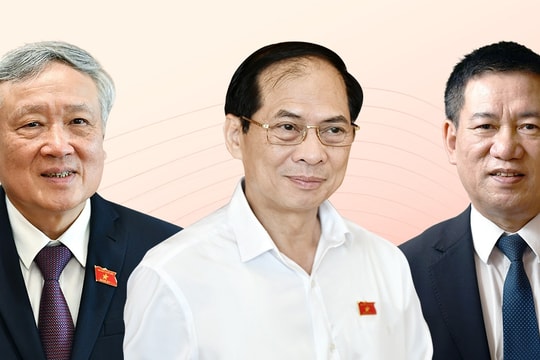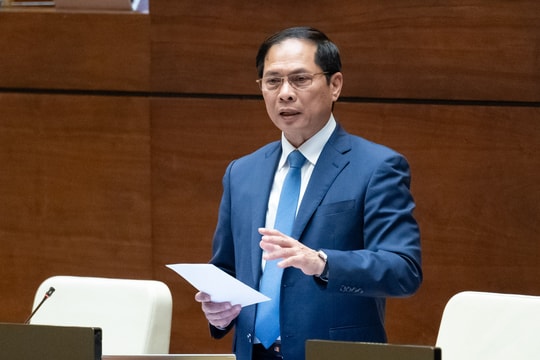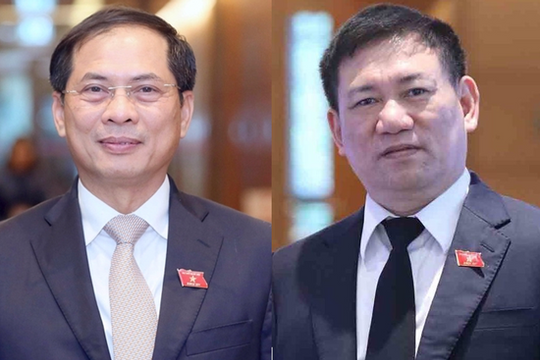Vietnam finds common interests in APEC
"Friends assessed that we have reconciled and found similarities in the common interests of all economies in the region," Deputy Foreign Minister Bui Thanh Son said about the success of APEC 2017.
PV:Sir, international public opinion has recognized many efforts of Vietnam in successfully organizing APEC 2017. So on our side, what do you see as the most outstanding successful results?
Mr. Bui Thanh Son:The biggest thing that our friends appreciate about us is that we have successfully organized, harmonized and found similarities in the common interests of all economies in the region.Journalist Pham Huyen:Sir, international public opinion has recognized many efforts of Vietnam in successfully organizing APEC 2017. So on our side, what do you see as the most outstanding successful results?
This year is much more difficult than previous years, so when we put forward the theme and priorities, we received a very high consensus. Throughout the past year, we have received consensus, support, help, and joined hands to build this common future. Thanks to that, we have all reached the peak of the APEC 2017 Summit Week, which is the issuance of the Da Nang Summit Statement, and at the same time, we have presented documents and initiatives of Vietnam.
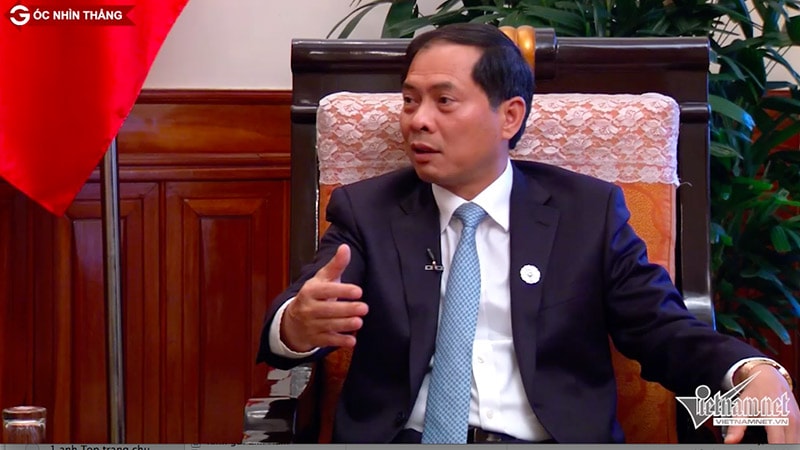 |
| Deputy Minister of Foreign Affairs Bui Thanh Son talks about APEC 2017 at the Straight View program (photo: VietNamNet) |
Among them, the most prominent documents are on human resource development in the digital age, inclusive development in economics - finance - society, development of small and medium enterprises in the digital age, etc. All of these initiatives have created a new direction in APEC cooperation in the coming period.
On the other hand, along with the success in content, we also succeeded in other aspects such as reception, facilities, security, logistics, etc. All of these factors created an overall effect that made the economies and leaders feel satisfied and happy when coming to the APEC Summit Week.
PV:Sir, compared to APEC 2006, which Vietnam first hosted, what progress have we made in APEC 2017?
Mr. Bui Thanh Son:In 2006, the globalized environment was developing very strongly, the trend of association, cooperation and trade liberalization was also being promoted.
By 2017, the trend of globalization was still growing. However, the current context has had some negative aspects compared to 2006, which is the emergence of some concerns about the uneven distribution of globalization due to some economies being pushed back, and protectionism also increasing in some places.
Therefore, this year, as the host of APEC 2017, we also face many challenges in steering the APEC ship in the right direction and bringing common benefits to economies in the region.
However, this year we have many more advantages than last year, our position and strength are different from before. We have become a middle-income country, have 25 strategic partners and comprehensive partners, and have signed and implemented 16 new-generation Free Trade Agreements.
What we have done differently compared to 2006 is that our foreign policy of independence, self-reliance and proactive spirit of international integration are much more active. Previously, we could only participate, but now we have proactively shaped and led these multilateral mechanisms.
In summary, in 2017 we had 11 initiatives of different types adopted. Of these, 8 documents were adopted at the highest level.
This proves that our ministries and localities have actively participated and proposed ideas that are consistent with the common goals of APEC economies, but also very close to the interests of Vietnam. Therefore, we have reached consensus and achieved success in APEC 2017.
PV:Within the framework of the APEC 2017 Summit Week, public opinion is also particularly interested in the economic and trade investment cooperation between Vietnam and economic powers, especially between Vietnam and countries such as the US and China. What is your assessment of the potential for economic relations between Vietnam and these two countries?
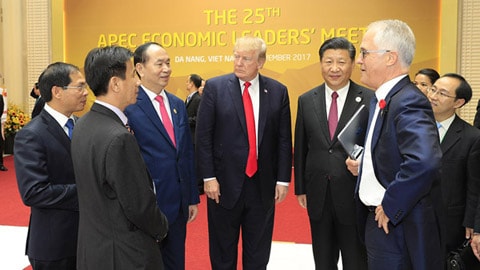 |
| President Tran Dai Quang, US President Donald Trump and Chinese President and General Secretary Xi Jinping and other heads of state and leaders at the APEC 2017 event in Da Nang |
Mr. Bui Thanh Son:A key point in APEC’s goal is that we join APEC to share experiences and support each other for mutual development. From that favorable multilateral environment, economies not only negotiate multilaterally but also have bilateral economic relations with each partner, but still on the basis of common world rules.
During the APEC 2017 Summit Week, we created an effect of strengthening and deepening bilateral cooperation with leading economic partners in APEC.
As we know, in addition to the bilateral meetings of our leaders with other economies in APEC this time, there are two very special visits: the State visit of General Secretary and President Xi Jinping and the State visit of President Donald Trump.
Both of them paid state visits to Vietnam and this year, especially, both of them came to speak at the APEC Business Summit. That created a huge impact on the APEC business community in general and Vietnam in particular.
The two sides not only directly agreed on economic contracts of great value, but more fundamentally, they created a legal framework to sign many documents, in which the economic benefits are not only calculated in money immediately but in the coming years when implementation begins, the effectiveness will be much greater.
I believe that with the results within the APEC framework along with the results of these bilateral visits, all will create a very good effect for the business communities of both Vietnam - US, Vietnam - China and the localities of the two countries together, in the near future there will be very strong waves of investment cooperation.
PV: In the past, when talking about TPP, people talked about the appearance of the United States, although it came later, it was like a conductor leading the way. But now, when this country is no longer participating and within the framework of APEC 2017, this Agreement has continued to be discussed by the remaining 11 countries, through a new name CPTPP. Will the benefits that Vietnam can reap in a CPTPP agreement without the United States still be the same as before?
Mr. Bui Thanh Son:Within the APEC framework, there are many paths to the common goal of free trade in the Asia-Pacific region, such as the TPP, the Trans-Pacific Partnership Agreement, and agreements such as the RCEP Comprehensive Partnership Framework.
Our participation in TPP has been a long-standing policy. Currently, the United States wants to withdraw, but the positive point is that the remaining 11 countries in TPP have shown great determination, continuing to promote to bring about an agreement that has now agreed on a new name: Comprehensive and Progressive Agreement for Trans-Pacific Partnership with high standards to meet the requirements of the new era, especially in the era of digital age and e-commerce that is developing very strongly.
Preliminary, we have assessed and the feasibility study reports of research projects of different economies also agree that with a new agreement, although without the United States, it still creates two very important effects. One is to continue to maintain the momentum to promote free trade and investment in the region. The second is to continue to bring benefits to member economies, both directly and indirectly.
According to research reports, even without the United States, when participating in this new agreement, we still benefit over 1.2% of GDP. But the more important indirect thing is that in the process of participating in this process with higher rules and standards, we must make efforts to reform our economic cooperation mechanisms to meet the needs of this comprehensive and progressive free agreement.
Indirect benefits will contribute an additional 8-9% to Vietnam's GDP, creating both short-term and long-term effects on our economy.
PV:Sir, at the APEC 2017 business conference, US President Donald Trump mentioned the phrase “Indo-Pacific”, a region where countries will rise in peace and freedom, with a principle that countries will comply with the law equally.
Many people also wonder why US President Donald Trump mentions the phrase “Indo-Pacific” so much. Personally, what message do you think the US President is trying to emphasize here?
Mr. Bui Thanh Son:In 2017, APEC economies and economies in the Asia-Pacific region will all be watching to see what policies the new US administration will follow. What is Donald Trump's direction for the Asia-Pacific region?
We can see that Mr. Donald Trump's visit to the Asia-Pacific region to attend APEC in Vietnam, his state visit to Vietnam, then his attendance at the East Asia Summit in the Philippines and the ASEAN Summit... has shown that the new US administration has demonstrated its commitment to the region, because they also clearly recognize that America's security and prosperity are linked to the Asia-Pacific region, which is the center of world development in the 21st century. America, one way or another, must be attached to the region.
Through Mr. Trump's message, as I understand it, the US now not only wants to be contained in the Asia-Pacific region or the East Asia region, but they also want to expand to the Indian Ocean, including the Asia-Pacific and the Indian Ocean to connect into a larger space for the US.
However, how to implement it is still unclear. With that message, I also do not see clearly the direction that the US will deploy. But for now, the economies see that the US commitment to the Asia-Pacific region is one step clearer than it was 6 months ago.
PV:Sir, in the current context of the world's political economy, which is always subject to many unpredictable fluctuations, after the success of APEC 2017, what do you think Vietnam and its member countries need to do to achieve good goals such as nurturing the future and achieving the goal of inclusive growth?
Mr. Bui Thanh Son:The great success of APEC 2017 also poses a new challenge for us: how can we maintain and continue to spread the successful results of APEC 2017?
As I said, this year we have 3 key initiatives that are supported by economies and will continue to be implemented in the coming years. These include inclusive economic - financial - social development; human resource development initiatives in the digital age; and building a mechanism to discuss APEC's vision after 2020. I believe that these will continue to spread in APEC in the coming time.
For domestic use, we must spread these initiatives to businesses and people. Because these initiatives are very close to us.
We also try to work with relevant ministries and sectors to disseminate these results so that our business community can take advantage of them in building and developing the economy in general, and at the same time, proactively cooperate with APEC international businesses during the recent high-level week to achieve the best results.
VietNamNet
| RELATED NEWS |
|---|

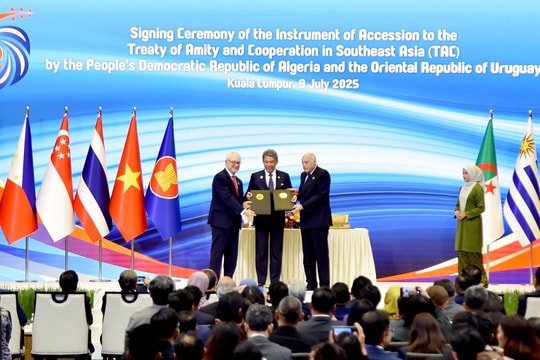
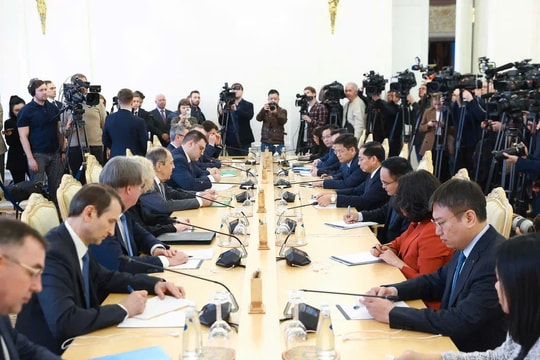
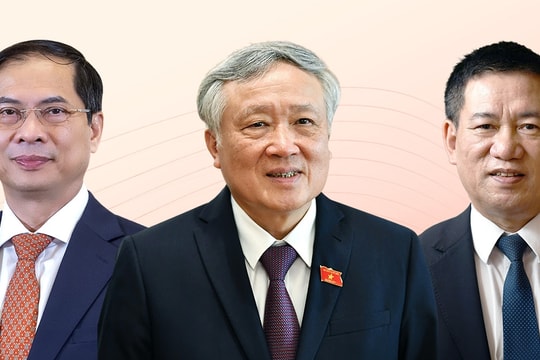
![[Infographics] Chân dung tân Phó Thủ tướng Bùi Thanh Sơn [Infographics] Chân dung tân Phó Thủ tướng Bùi Thanh Sơn](https://bna.1cdn.vn/thumbs/540x360/2024/08/26/ptt-bui-thanh-son-add.jpg)
